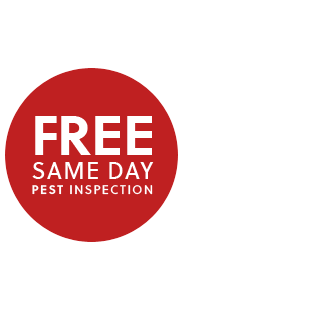Got termite questions? Clark has the answers
When it comes to termites, homeowners usually have lots of questions. Clark, your neighborly termite, pest, mosquito, rodent, and grounds care expert, has answers.
Protecting your biggest investment is as important to Clark Pest Control as it is to you. As termite swarm season arrives across California, Clark would like to answer your most frequently asked termite questions.
Q: How can you recognize termites? A: Termite swarms are typically visible in early spring. These airborne termites are often confused with flying ants. Telltale signs of termite infestation include soft wood around your home, mud tubes on the exterior of your home (often near the foundation), and darkening or blistering of wood structures.
Q: My house has been treated for termites before. Do I need to schedule service again? A: Regular termite inspections are important to help protect your home from termites. Having your home inspected annually for signs of termite activity will allow you to get ahead of any potential issues and save you money and hassles down the road. Schedule your free inspection today.
Q: How much damage can termites cause? A: Termites eat 24 hours a day, seven days a week. Damage to wood in and around a structure can happen very quickly. In fact, it’s estimated that termites cause $5 billion in property damage each year. The good news is that termites can be controlled with the partnership of a licensed, trained pest professional.
Q: Can termites really eat the wood in my house? A: Termites eat wood and anything containing cellulose, such as wallpaper, books, boxes, carpet backing, drywall, and furniture. In their natural environment, termites support the ecosystem. They digest rotting wood, turning it into humus, an organic material that improves soil. When land development displaces that natural environment, termites can occupy and destroy the wood in buildings erected there.
Q: Can a termite eat through plastic? A: No, termites cannot eat through plastic, but they may try to break through plastic to access a food source.
Q: Do termites eat concrete? A: No, termites cannot eat concrete. Because termites fit through cracks in concrete, you may
think that termites have chewed through this tough barrier. Not true. You should also realize that concrete is not sufficient as a barrier to prevent termites from reaching the wooden parts of a house.
Q: What is the most effective treatment for termites? A: Clark Pest Control is committed to providing highly effective treatment options for all pest issues, including termites. The most effective type of treatment depends on the severity of the infestation, the species of termite, and the location and construction of your home. Clark’s highly trained and licensed termite specialists assess each infestation individually and recommend the most effective treatment plan.
Termite control solutions from Clark Pest Control
For maximum protection against termites, you can schedule a no-obligation home wellness inspection that includes a complete termite inspection. You also can ask for more information on Clark Pest Control’s exclusive Termite Infestation Protection (T.I.P.) program, which is designed to protect your home from future infestations and damage caused by all species of termites.
Call or text California’s trusted, friendly termite control expert at (800) WE-NEED-YOU (936-3339) or email us at clarkcares@clarkpest.com to schedule your home wellness inspection and defuse the termite threat. Until next time, the pest management professionals at Clark Pest Control thank you for helping to keep unwanted pests out of your home and yard.


